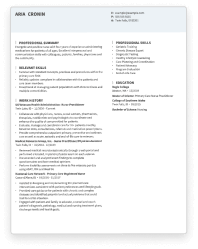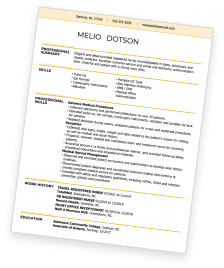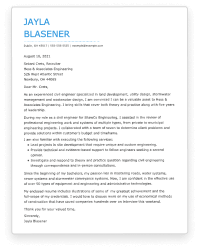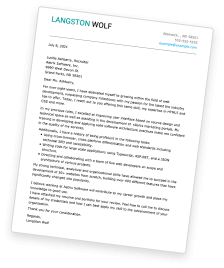Food and Beverage Manager Resumes: Overview
As a food and beverage manager, you are responsible for food and beverage operations in a hospitality establishment. This are important qualifications to focus on when you build your resume.
You manage budgets, lead teams, ensure excellent customer service, design menus and maintain health and safety standards.
Food and beverage management is a diverse and demanding role that can be found in many settings, including:
- Restaurants
- Hotels and Resorts
- Catering Companies
- Event Spaces
- Cruise Lines
- Entertainment Venues
As a food and beverage manager, adaptability, leadership, and a passion for hospitality are crucial to your success.
If you are looking for your next food and beverage management position, our resume examples can help you showcase your skills effectively in your resume to make a great impression.
For more resources, explore our downloadable templates and check out our impressive professional resume examples for inspiration!
Food and Beverage Manager Resume: Choose a Format
You must make two important choices before writing your food and beverage manager resume.
Crafting an exceptional food and beverage manager resume starts with choosing a visually appealing template and the best resume format to showcase your skills and experience.
You can choose from three types of resume formats to make your resume shine!
Chronological Resumes for Food and Beverage Manager
The first and most common format is a chronological resume. If you are a seasoned professional in the culinary world, a chronological resume is a powerful tool.
This format highlights your work experience, allowing you to showcase your career progression and detail your impact in previous roles.
Chronological resumes are highly effective. Employers appreciate the clarity and emphasis on work history, and it is also compatible with automated applicant tracking systems (ATS).
Because of its familiar format, a chronological format is ideal if you have relevant food and beverage management experience.
A chronological format emphasizes your work history and includes bullet points under each job to describe your responsibilities, accomplishments and industry knowledge.
Each bullet can be tailored to showcase your most relevant qualifications for your desired food and beverage management job!
Functional Resumes for Food and Beverage Manager
The next option is a functional resume format. A functional resume can be a good choice when you’re changing careers or possess a diverse skill set.
A functional format strategically highlights your transferable skills, such as leadership, communication, and organizational abilities.
You can stand out by emphasizing your relevant qualifications even if your work history doesn’t strictly align with food and beverage management. It’s an excellent choice for those looking to pivot into this dynamic field.
It is important to note that applicant tracking systems are commonly used in the food and beverage industry, so be aware that a functional format may not be ATS-friendly. That doesn’t mean it’s not the right choice for you, but it is important to understand the limitations of this particular format.
Combination Resumes for Food and Beverage Manager
The third option balances elements from both chronological and functional formats. A combination resume is ideal if you have a mix of experience and transferable skills.
A combination format provides a comprehensive view of your qualifications, allowing you to showcase your career progression and abilities equally.
If you want to emphasize your skills and have at least some relevant experience, a combination resume is the perfect choice for a food and beverage manager.
Choosing a Resume Format
Your resume format should showcase your expertise in the culinary world and effectively communicate your qualifications to potential employers. Choosing the right format for you is a crucial step in creating an impressive food and beverage manager resume.
If you aren’t sure which format is the best for you, a chronological resume is recommended by most career experts.
Even if you have little to no food and beverage experience, you can tailor your resume to showcase your transferable skills and enthusiasm for the job.
For example, if you have customer service experience or have supervised employees in another industry, highlight those skills to show your qualifications for a food service manager position.
How to Write a Food and Beverage Manager Resume
Once you have chosen the right format for your resume, you can write a resume that will impress potential employers and help you get the job!
Your resume will consist of five key sections, and then, if space allows, you can consider a few additional sections to fill out your resume. First, spend time outlining the most vital parts of a resume:
- Contact Information
- Summary or Objective Statement
- Work History
- Skills
- Education
Employers will be expecting these five sections to be included in your food and beverage manager resume, so keep reading to find out how to make the most of each section!
Contact Information
Your contact information should be easy to read and easy to find at the top of your resume. Include your full name, city and state where you live, email address and phone number.
Depending on your resume template’s design, your contact information may look something like this:
Jane Johnson
Newtown, CT
jjohnson22@fake.email.com
555-555-5555
Remember to double-check your contact information for typos. After all, potential employers can’t contact you if this section is not accurate and up to date!
Summary or Objective
Next, you will introduce yourself with a brief, captivating resume summary or objective statement. In 2-3 sentences, you will express your interest in the job and highlight your skills and experience.
A resume summary is the best choice if you have experience as a food and beverage manager.
It simply briefly overviews your experience level and most relevant skills. For example, suppose you are a seasoned food and beverage professional.
In that case, you might write a resume summary like this:
“Accomplished food and beverage manager with a proven track record in elevating dining experiences and optimizing operational efficiency. Exceptional team leader with strong communication and interpersonal skills with eight years of experience maximizing customer satisfaction.”
However, if you are new to food service management, you can use an objective statement to express your career goals and enthusiasm for the work.
Here’s an example of what that could look like:
“Aspiring food and beverage manager seeking to leverage culinary expertise and leadership skills in a dynamic restaurant setting. Energetic and passionate about providing exceptional customer service and eager to grow in my hospitality career.”
Work History
Next, you will create a work history section. This section will list your work experience in reverse chronological order. Start with your most recent job, and then work backward.
Each job entry should include your job title, the employer’s name, the business’s location, and the dates you worked there. It should look something like this:
Assistant Food and Beverage Manager
Royal Canadian Hotel – Toronto, ON 01/2019 – 03-2023
Then, underneath each job entry, include at least three bullet points describing your job responsibilities and accomplishments.
Use strong action verbs, numbers and percentages to make your qualifications stand out. Quantifiable achievements are especially useful in clearly demonstrating your value as a food and beverage manager.
For example, you might write:
Trained and supervised a team of 20 staff members, resulting in a 15% increase in customer satisfaction scores
Employers place a high value on your work history, so take time crafting this section to ensure you are showcasing the skills and experience that hiring managers are looking for.
Tailor this section of your resume to each specific position you are applying for to show you are the right candidate for the job!
Skills
Every resume should have a dedicated skills section that gets the attention of potential employer by including both hard skills and soft skills to demonstrate you are a well-rounded professional.
Your skills section is an excellent opportunity to customize your resume to align with the food and beverage manager job description. Read the job posting carefully, and make a list of any of your skills that align with the job requirements.
We’ve compiled the top hard and soft skills for a food and beverage manager resume to help you get started:
Top 5 Hard Skills for Food and Beverage Manager Resumes
- Menu Development: Crafting innovative and profitable menus is critical to food and beverage management jobs.
- Inventory Management: Food and beverage managers must maintain optimal stock levels to control costs and serve customers.
- Staff Training: Great managers foster a skilled and motivated team by showing them the ropes and teaching them
- Vendor Negotiation: The ability to establish favorable partnerships for quality supplies is a sought-after skill in the food service industry.
- Health and Safety Compliance: Maintaining a safe and hygienic environment is vital to success as a food service manager.
Top 5 Soft Skills for Food and Beverage Manager Resumes
- Leadership: The ability to guide and inspire your team is essential to food and beverage management.
- Communication: As a food and beverage manager, you must be able to convey expectations and feedback to your employees effectively. .
- Adaptability: To thrive in a fast-paced and ever-changing environment, food and beverage managers must be flexible and able to adapt quickly to shifting priorities and changing customer needs.
- Customer Focus: Success in food and beverage management requires prioritizing guest satisfaction and feedback.
- Problem-solving: The best food and beverage managers can address challenges swiftly and effectively.
Highlighting your most relevant skills is vital to getting your resume noticed by hiring managers.
Remember to tailor your skills section to each job you apply to, emphasizing any skills matching the job description.
On a food and beverage manager’s resume, the skills section may look like this:
Strategic menu development
Budget management
Team leadership
Vendor negotiation
Customer Focus
Written and Verbal Communication
Education
Next, you will provide your educational background on your food and beverage manager resume. Include relevant degrees, certifications, and institutions.
Many food and beverage management positions require a bachelor’s degree, but employers may accept food and beverage work experience instead of a formal degree.
For this section, simply list your highest level of education, including the degree, the school or the university, and the location (city and state).
For example, your education section may look like this:
Bachelor of Science: Hospitality Management
XYZ University
Plano, Texas
Additional Sections
Now that you have covered the basics, you can enhance your food and beverage manager resume with optional sections like:
- Certifications
- Professional Memberships
- Awards and Honors
- Languages spoken
- Volunteer Experience
Remember to keep these sections focused on the value you bring to a potential employer. Use any additional sections to provide a more complete picture of who you are and what would make you the ideal candidate.
Certifications for Food and Beverage Managers
One additional section to consider is a list of any professional certifications you have earned. Industry-recognized certifications elevate your food and beverage manager resume by demonstrating your commitment to excellence and professional development.
There are several specialized certificates for the hospitality industry, including:
- Certified Food and Beverage Executive (CFBE): This prestigious certification validates your knowledge and experience working in the dynamic hospitality industry.
- ServSafe Food Manager Certification: This certification validates your food safety knowledge and ability to ensure employees practice food safety standards.
- Certified Dietary Manager (CDM): This certification is common for food and beverage managers working in schools, hospitals or clinical facilities.
9 Tips For Writing A Food and Beverage Manager Resume
Tailor your resume: Align your resume with each job description to get noticed by applicant tracking systems and hiring managers. Use industry keywords like menu development, food safety, and kitchen supervision. Be sure to mention the skills and qualifications listed in the job posting to increase your chances of getting called for an interview.
Quantify achievements: Use numbers and percentages to showcase your impact in previous jobs. For example, don’t just say that you “supervised food and beverage team.” Instead, emphasize your contribution by saying, “Supervised a food and beverage team of 20.” Or, “Led a food and beverage team of 20 to increase customer satisfaction ratings by 10%.”
Highlight leadership skills: As a food and beverage manager, your employer will expect you to recruit, train and lead a team. Let them know you are up to the challenge by emphasizing your leadership skills and experience.
Emphasize technical skills:Proficiency in inventory management systems, knowledge of point-of-sale systems (POS), and experience using common software applications is valuable in food and beverage service.
Use keywords: Make your resume as ATS-friendly as possible by using keywords from the job posting and industry-specific terminology. In addition to passing initial screenings, it will demonstrate your knowledge of the job.
Showcase menu planning and execution: Get your resume noticed by hiring managers by detailing your experience planning and executing menus for restaurants or special events. Include information about how you managed costs and exceeded customer expectations.
Be concise: A resume for a food and beverage manager should be no more than one page long unless you have a very lengthy relevant work history. In that case, you can go onto a second page. However, hiring managers review stacks of resumes and spend minimal time scanning each one, so keep your resume focused and relevant to the job you want.
Use visual appeal: Food and beverage is a visual industry that values presentation. Use a visually appealing resume design to catch the eye of potential employers.
Proofread carefully: It should go without saying, but your resume represents your work as a food and beverage manager. Show potential employers that you are professional and have an eye for detail by ensuring your resume is free of typos and grammatical errors.
Helping Job Seekers Like You


Save Time With Our Resume Builder
Key Takeaways
- Choosing the right resume format will showcase your unique food and beverage management skills and experience in the best possible light.
- Crafting an impactful summary or objective statement highlights your experience as a food and beverage manager and entices the hiring manager to keep reading.
- Food and beverage managers need a combination of hard and soft skills to succeed in the hospitality industry.
- Using action verbs to showcase achievements and numbers to quantify your impact in each role will make your food and beverage manager resume stand out.
- Including relevant food and beverage management certifications can enhance credibility and validate your industry expertise.
Save Time With Our Cover Letter Builder












